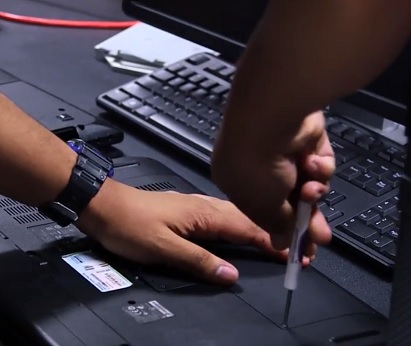(Credit: Austin Community College)
Austin Community College and the Austin Chamber of Commerce released the 2019 Workforce Development Report: Innovation, Collaboration & Transformation highlighting ACC’s efforts to build the workforce in the region’s most in-demand industries: IT, skilled trades and manufacturing, and health.
“ACC is a critical partner to the region and to employers,” says Mike Perrine, chair of the Workforce Development Report Task Force. “We’re seeing a continued increase in performance and completion which I think is tremendous. It’s a testament to the right programs with the right curriculum that our area workforce has been asking for. ”
Central Texas is projected to create more than 60,000 new and replacement job openings for middle-skilled workers by 2021. As the area’s primary gateway to higher education and training, ACC plays a critical role in building a labor force pipeline to fill workforce gaps.
“ACC strives to close equity gaps, because we know that is the key to creating a stronger, more stable community,” says Dr. Richard Rhodes, ACC president/CEO. “It is important we take these findings to examine how we may work with our business and community partners to build the pathways that better serve all students — particularly those underrepresented in higher education.”
In 2018, ACC’s enrollment rates remained steady, a stark contrast to declining rates across the country. The college also experienced solid growth in the number of completions. Over the past four years, completion rates doubled and transfer rates increased by nine percentage points. Other findings and developments noted in the report:
- Approximately 79 percent of ACC alumni remain in Central Texas.
- The number of workforce credentials earned increased 52 percent from 2014 to 2018.
-Sharpest gains were in targeted areas including Health Sciences, Design, Manufacturing, Construction & Applied Technologies, and Computer Science and Information Technology — up 12, 42, and 11 percent respectively.
- High school enrollment in credit courses increased by almost 60 percent from 2014 to 2018.
-Sharpest gains were among Hispanic/Latino, Black/African American, and Asian students — up 132, 103, and 135 percent respectively.
The report also outlines steps for future success through multi-stakeholder collaboration.
“ACC strives to be a regional catalyst for collaboration and growth,” says Dr. Rhodes. “With our partners, we can increase the direct-to-college pathway and dual credit programs, build funding for career-technical programs, and develop new options for diverse learners.”
“We have a charge from the public to build our economy, and ACC is being proactive in setting targets and developing strategies to create the skilled workforce we need,” says Perrine. “To have a partner that’s focused on delivering for the future is powerful.”
CLICK HERE for the full report.





